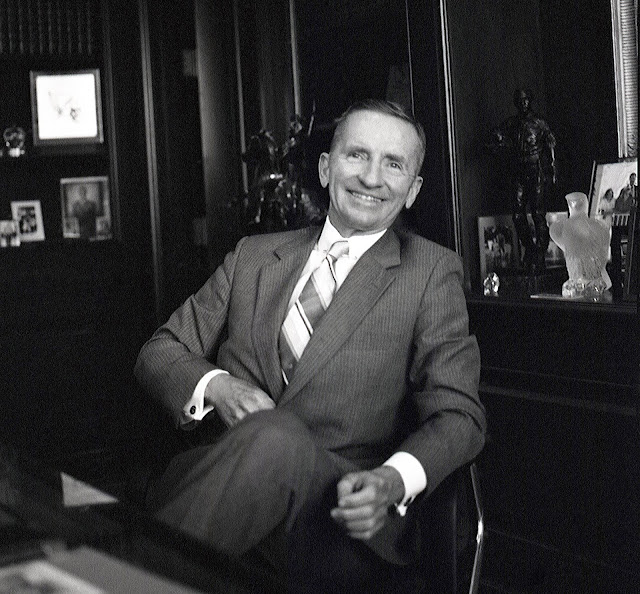Francis I. duPont & Co. Genealogy: Part XIII
William R. Staats & Co., Continued
F.I. duPont, Glore Forgan & Co. (1970)
Wall Street was particularly interested in the fate of the new firm because duPont, Hirsch and Glore Forgan were all considered "substantial houses prior to the merger, but all were experiencing some kind of financial difficulty." The New York Times reported, "Many of Wall Street's managers believe mergers will provide the key to that future, since they theoretically will enable brokerage houses to find economies of scale that were unavailable to them before F.I. duPont, Glore Forgan & Co. probably will be a case study for the whole industry." The hope was that the merger would diversify the firm's services and its geographic footprint while also cutting costs. Hirsch & Co. was known to have "retail strength in metropolitan New York and Florida as well as Europe" while "Glore was a major-bracket investment banking house with a retail system largely on the West Coast" where F.I. duPont did not have a large presence. By merging, the firms said that they would also reduce their operating costs by streamlining their automated systems.
Very soon after the merger, however, the firm released an audit showing that its capital funds declined $15 million, from $60 to $45 million. The NYSE became very concerned about the firm's financial condition. Rumors began to circulate that they newly merged firm was in distress and that it might collapse. By September 1970, Albright resigned as president and chairman and became a special limited partner. Amidst a very dire situation, F.I. duPont, Glore Forgan was saved from immediate failure by Ross Perot, the Texas millionaire and founder of Electronic Data Systems Corporation (founded 1926), who decided to invest $10 million into the firm.
 |
| Ross Perot portrait by Allan Warren. |
The Entry of Ross Perot
A U.S. Naval Academy graduate and the son of a cotton broker, Perot began his career as a salesman for IBM and built EDS into a giant computer software company and wanted to expand into the area of financial services. A Wall Street outsider and a Texas native, Perot had been introduced to the firm by Rudolph Smutny (1897-1974), a duPont partner, who has been the former president of R.W. Pressprich & Co., which underwrote EDS's IPO in 1968. Perot was tempted by the possibility that EDS could become the computer service provider for Wall Street and saw the possibilities of duPont being his entrée into the field.
Perot received a contract for F.I. duPont's computer operations in July 1970 by giving the firm $3.8 million in 100,000 shares of EDS stock. When F.I. duPont's partners tried to sell the shares in order to raise more capital, Perot later said he realized the depth of F.I. duPont's situation, and he was not pleased. The NYSE leadership convinced Perot, however, that F.I. duPont's failure would lead to a collapse of Wall Street and the stock exchange. This challenge appealed to Perot, who considered himself a patriot and had recently made headlines trying unsuccessfully to fly to Vietnam in order to intervene with American prisoners of war. Thinking also of the possibilities for business for EDS, Perot agreed to go through with the loan.
In return for his investment, Perot received many concessions. The F.I. duPont, Glore Forgan & Co. was incorporated and Perot became a 51% owner of the firm, "marking the first time in its 40-year history that the firm had been out of duPont family control." That percentage increased in theory to 91% after the duPont interests, which included the former partners and members of the family, failed to contribute more capital to the firm. Most dramatically, Edmond duPont lost his position as chairman of the board. His replacement was John W. Allyn, the former senior partner of A.C. Allyn & Co. (founded 1922, Chicago), which had been taken over by F.I. duPont & Co. in 1963. Harold A. Rousselot, a former partner of Orvis Brothers & Co. and a Columbia University graduate who joined duPont in 1955, replaced Wallace Latour as managing partner. Latour "was said to have opposed yielding control of the firm to Mr. Perot and his colleagues" for the "surprisingly small sum" of $10 million. Though Latour initially remained a general partner, he left the firm and joined Bache & Co. in February 1971.



Comments
Post a Comment